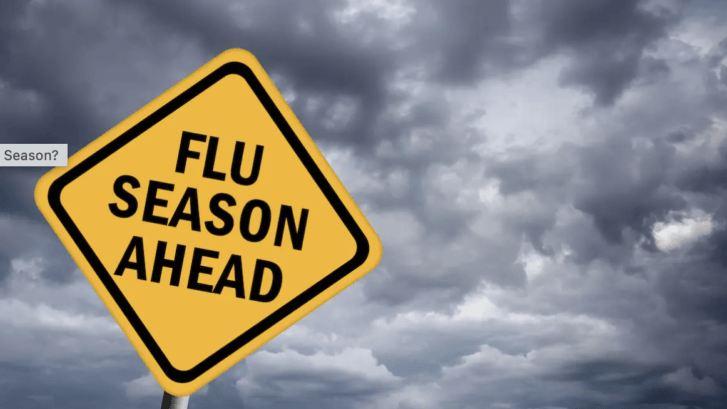Experts Predict a Severe Flu Season, So Get Vaccinated Now
If you hear the word “vaccine” and automatically think of COVID-19, our concierge primary care doctors in Jupiter don’t blame you. But there’s another virus lurking on our shores: the annual influenza outbreak, which deserves our attention now.
You can be forgiven for thinking we no longer had to worry about the flu because, for the last two years, it all but disappeared. This is largely due to all the hand washing, social distancing, and mask-wearing we practiced during the pandemic.
But unfortunately, those sensible health precautions are pretty much behind us now, and all signs point to a worse-than-normal flu season. In fact, we’ve already seen scattered reports of cases around the country. And remember that many cases go unreported because people typically recover at home without being officially tested and recorded.
Ominous Signs
The reason experts are expecting a more severe 2022-23 flu season is that they’re looking to Australia, which undergoes its flu season before ours.
That country is just concluding its worst season in five years, with cases reported to be three times higher than normal. Their season also began two months sooner than it typically does, meaning it is expected to arrive sooner than usual here, as well.
“The Southern Hemisphere has had a pretty bad flu season, and it came on early,” Anthony Fauci, director of the National Institute of Allergy and Infectious Diseases, told Bloomberg News late last month.
“Influenza, as we all have experienced over many years, can be a serious disease,” he added, “particularly when you have a bad season.”
Dr. Frank Esper, a pediatric infectious disease specialist at the Cleveland Clinic, echoed those warnings.
“This year we expect it to be a very big flu season and that the flu season [will be] even worse in the younger groups [than] it was in years past,” he told Cleveland’s Fox8.
We’re Not Prepared
For the last two years, we have rightly been focused on avoiding COVID-19, which has killed well over one million Americans to date. But influenza also presents a danger, especially to very young, pregnant women, those with chronic conditions, and the elderly.
In 2019, the last year that we actually had a notable flu season, nearly 61,000 Americans died from the flu, including 129 children. There were approximately 42.9 million cases of the flu, with 647,000 of those requiring hospitalizations. And that was considered a mild season (although it was the longest season in a decade, beginning in October and ending in May).
In addition, because of the demise of COVID-19 restrictions in general, we could get hit even harder.
“The thought is when the COVID pandemic hit, we started masking up and everyone started socially distancing, schools were closed for a whole year,” Esper said.
“Flu just nose-dived. It almost got to the point where there was no flu.”
But because we haven’t been exposed to it lately, we are even more vulnerable to its effects, making it harder to fight off.
“Usually, we see the flu every year. Our immune systems are ready for it. When you haven’t seen the flu in two or three years, that means our immune systems may be a little slower,” he explained.
Double Whammy?
Then there’s the possibility of a “twindemic,” or a severe flu season that strikes at the same time as an uptick in coronavirus activity. This is a distinct possibility because both viruses tend to increase circulation when people spend more time indoors in the colder months, and immunity from earlier vaccinations or infections is beginning to wane, especially in those who haven’t had a recent coronavirus booster.
In fact, we’ve already seen an increase in COVID-19 cases across the country in the last two weeks, according to data provided by the Mayo Clinic.
So the Centers for Disease Control and Prevention (CDC) reports that getting a flu shot this year is recommended as “the first and most important step in protecting against flu viruses,” while at the same time reducing the burden of flu hospitalizations and deaths.
“An influx of hospitalizations from COVID-19 and the flu could stress the healthcare system and impact staffing if any healthcare workers are out sick,” Soniya Gandhi, associate chief medical officer at Cedars-Sinai, told Cedars-Sinai Newsroom.
The Time is Now
Because of all the signs that the flu season here could start early, it’s important to receive your vaccine as soon as possible, since it takes at least two weeks to achieve full immunity.
“The bottom line is that you don’t want to wait until you’re already going to be at risk of getting influenza to get vaccinated,” Dr. Albert Ko, an infectious disease physician and professor of public health, epidemiology, and medicine at Yale School of Public Health, told NBC’s TODAY.
And we’ve seen with COVID-19 that vaccines work to reduce the severity of such illnesses, not only in individuals but also in those around them who either can’t receive the vaccine or who don’t respond well to it.
Remember that if you haven’t yet received your omicron booster, you can get both shots at the same time, one in each arm.
“The flu and COVID-19 vaccinations are important on a personal level, and they’re critical from a public health standpoint,” Gandhi said.

